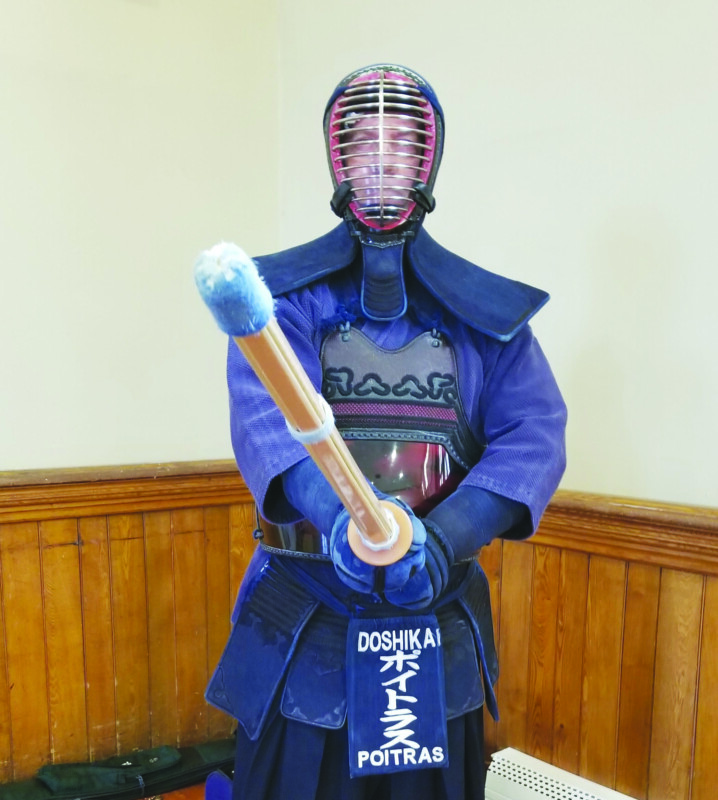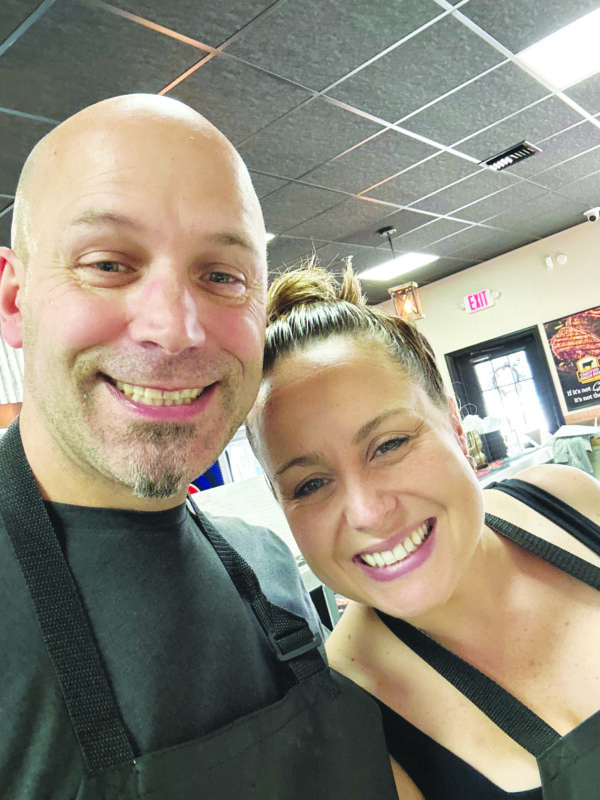SEE Science Center offers all ages science exploration
Shana Hawrylchak is the Executive Director of SEE Science Center. She spoke to the Hippo about all the exciting happenings at the Center. SEE’s mission is “to engage our community in the joyful, active exploration of science and innovation.” Along with her leadership at SEE, according to a press release, Shana is an active volunteer serving in leadership roles with many Manchester organizations, including Manchester Connects and the Greater Manchester Chamber of Commerce, and she instituted and chairs Hands-on Museums of New Hampshire.
What is the SEE Science Center and what sorts of family activities are there?
We’re a hands-on science museum and we’re really focused on kids 2 to 14 and their families. Kids are natural scientists, so they will start experimenting with anything and everything, and we like to really cultivate those innate abilities. At SEE we really are designed so that people can explore on their own and find what they love and really play with that. … We have over 90 hands-on exhibits here at SEE, and … we also do demonstrations about three times a day, so you’ll get to interact with the presenters. Coming up with the vacation weeks we’re going to have volunteers coming in to help, so there’ll be science activities that folks can do on the floors as well.
Would you like to talk about the Science on Tap program?
We’re in our 11th season, so it’s a really great program. It’s part of the Science Cafe movement across the United States, where adults get the chance to actually talk informally about science. We do it over at Stark Brewing Co., so you can go get yourself a beverage, a nice meal, and then interact with scientists. Each scientist will get like five minutes to talk about their area of science, and then it’s all about the questions that people are asking them. It’s an opportunity to really, that thing you’re curious about, really dive into some of the details on it and make sure that, ‘oh, I actually understand what’s happening,’ and get to talk to somebody. … it’s a chance for people to actually interact with someone doing the science.
What is the Science Cafe movement?
It’s really this movement of science museums across the country working to try to bring science to people. We also use a lot of jargon in science, which can make it pretty impossible for folks to really see what’s going on. A lot of concepts they might be able to completely understand if you remove some of that jargon. I think if we don’t engage with people in science, people don’t understand what’s happening, they’re not going to support it, and they’re also going to be a little dubious about what the science is telling us. It’s really important that everybody is sort of involved in those discussions and can ask questions with scientists to really improve their own understanding but also identify areas that they might want to explore themselves.
You were recently awarded the Emerging Leader Impact Award from the New Hampshire Center of Nonprofits. Would you want to talk a little bit about that?
It was awesome. It’s very nice to be able to win an award and get recognized, and I would say when somebody leading an institution gets an award it means that the people working at the institution did a good job. I wouldn’t be getting recognized if my team wasn’t doing a great job at what they do. So I think we’ve had the opportunity at the Science Center to really work with a lot of organizations and the team here at SEE has been really open to trying new things. It’s just an exciting time to be at the Science Center because of partnerships, a great crew here, and everybody is really working toward a common goal of just getting kids interested and excited about science.
What exciting exhibits do you think will be coming up in 2025?
So we have a lot of work we are doing for something that is opening in 2026. I can’t give too many details about it, but you’ll start seeing some materials coming out in 2025 as we’re working to do some major upgrades to the Lego Millyard Project downstairs. 2026 is the 20th anniversary of that project. You will start seeing a lot of upgrades and additions to the model, as well as new exhibits coming around that model, really showcasing some of the cool science stories that are happening there.
How did the Lego Millyard Project come to be?
[W]e’re in the building with FIRST…. It’s another nonprofit that encourages kids to get involved in science and STEM through robotics … and they have an ongoing partnership with Lego. We were lucky enough to be able to work with Lego through FIRST’s partnership to be able to design the Lego Millyard project. And it was a pretty awesome project. We got two master builders from Lego [who] came here … and helped design all of the buildings you see down in the project. It took about two years to create, about 10,000 man-hours, over three million Legos. It’s a pretty huge endeavor, but we are still a Guinness World Record holder for the largest permanent display of a minifigure scale in the world. It also won a historic preservation award because there’s a lot of buildings that are no longer there that have been represented to scale in the model. Legos are like this wonderful, imaginative vehicle for play, so it’s exciting for us to really show this model that not just represents the history of Manchester, but also encourages people to explore and think about the things they can create.
How did you become interested in running a science museum?
I from a very young age wanted to be in museums. When I was in third grade, I was studying cultures around the world and my mom took me and my little brother to see the mummies at the New York State Museum. I think I started my first museum in middle school. I’m getting close to 30 years in museums, which is insane to me but I think what I love about it is I feel like it’s all those wonderful things that make us human that … a lot of times you don’t get the chance to celebrate, like museums are spaces of thinking deeply, of being around your family and friends, of exploring something new that you maybe didn’t know about … that feeling of discovery is always right around the corner and I just love the feeling of being able to come to work and being like, ‘what am I going to learn new today?’ I don’t know that everybody gets a chance to do that in their jobs. For me, it’s just amazing.
Is there anything else you’d like to mention about the SEE Science Center?
I would definitely say for folks who might be visiting during the holiday week, we always encourage them to pre-register. You don’t have to pay ahead of time, but you can save your spot so we make sure that when you come you can get through the door…. We hope to get lots of folks here for the holidays, because it’s always tons of fun when we get all the kids on the floor. There’ll be great exhibits, demonstrations, and hopefully a lot of volunteers running kid activities, so it should be a lot of fun.
–Zachary Lewis
The SEE Science Center
Where: 200 Bedford St., Manchester
Hours: Tuesday through Friday, 10 a.m. to 4 p.m. with last admission 3 p.m.; Saturday and Sunday, 10 a.m. to 5 p.m with last admission at 4 p.m.
Tickets: $14 per person ages 3 and up
More info: see-sciencecenter.org or call 669-0400.
Featured image: Courtesy photo.






